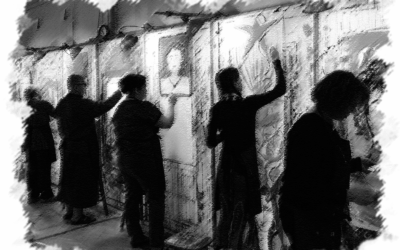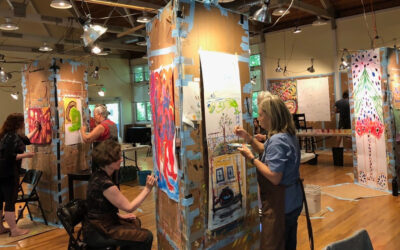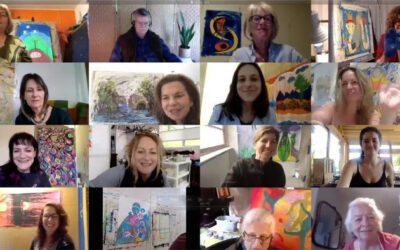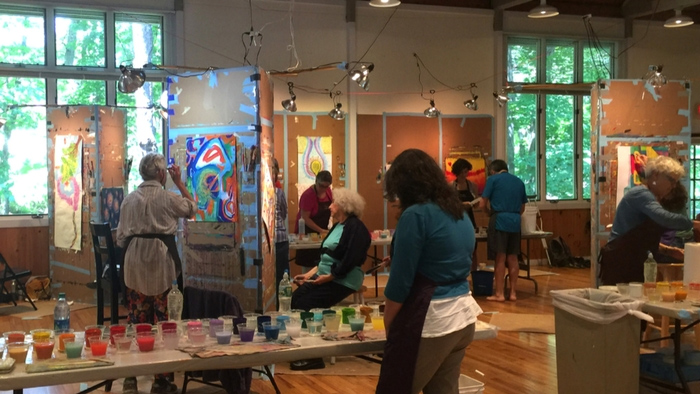
The Way It Is
There is a thread you follow. It goes among
things that change. But it doesn’t change.
People wonder what you are pursuing.
You have to explain about the thread.
But it is hard for others to see.
While you hold it you can’t get lost.
Tragedies happen; people get hurt
or die; and you suffer and get old.
Nothing you do can stop time’s unfolding.
You don’t ever let go of the thread.
~ William Stafford
When I’m working with someone in process painting, I rely on an intuitive current below the level of conversation. It has little to do with the stories people tell me about their paintings, their desires and preferences, their objections and judgments and their reasons to be finished. There’s a thread that weaves its way in and through the process that transcends any attempt to rationalize or explain what’s going on. It has an uncanny intelligence of its own and it follows its own rules and logic.
It announces itself through a seemingly innocent movement of the hand, a quickening of the breath when a new color is considered, a sudden straightening of posture at the appearance of an image. Its arrival is often surprising, yet it carries a sureness and inevitability. It seems like the most natural thing, but it’s often dismissed as being too obvious or unimportant.
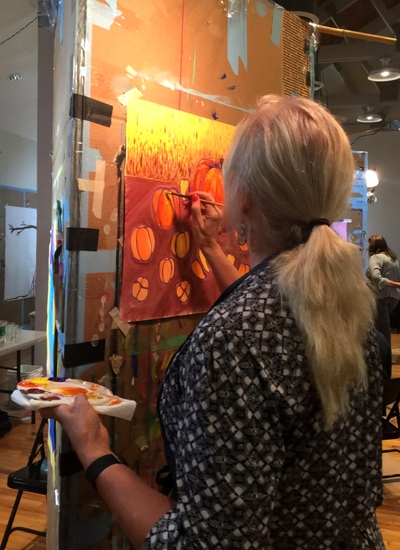
The thread is a hard taskmaster. It demands an authentic gesture that can’t be faked. If it’s not heeded — if we choose a route that has its source in the ever-plotting mind, it abandons us to struggle in a directionless maze of contrived concepts and frustrating dead ends. It requires absolute loyalty at the price of boredom and blockage. It’s the source of creative blocks as well as creative breakthroughs. It’s the invisible energy that guides and sustains us through the journey of process painting.
If followed, the thread will inevitably lead us to a passage of transformation. The banks of the stream will imperceptibly press in until the course is narrow and the way ahead seems impassable. A point will be reached where we must put everything at risk and there’s no guarantee of anything on the other side. At this moment the mind often balks and comes up with a thousand reasons not to proceed — it knows that something will have to die to reach that larger space beyond. And it’s here that the deepest magic of the process reveals itself. No concept can prepare you for the inevitable “crossing over” that ensues when you take that leap of faith.
I’ve come to rely on this mysterious thread. It’s what keeps me coming back to such an unorthodox and unfathomable practice with no established lineage. Sometimes I wish I could claim the authority of some “ism” to lend the support of eons and all those who’ve passed before. Sometimes I wish for the definition of a recognized profession with a sanctioned license from a state certified board of approval. But when I look, there’s sanction everywhere. It’s in the eyes of those who’ve touched the flame as they surrendered to the exciting current that calls them so strongly to their painting. It’s there in the keen interest and acute aliveness awakened when someone risks the plunge without the deadening safety of protection. And it’s there in the certainty I feel when I glimpse the wondrous workings of the thread in the lives of those who dare follow it.
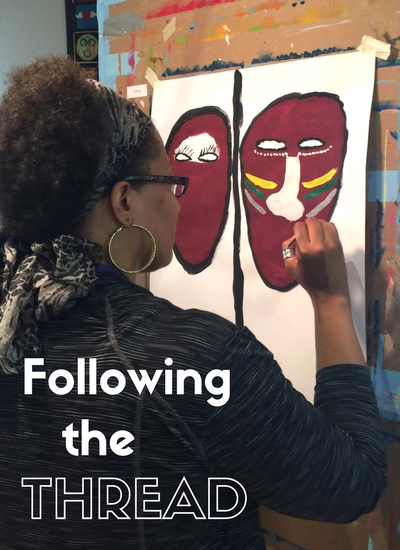
More Information
To further explore the potential of the creative process, listen and subscribe to Stewart’s series of monthly podcasts. You may wish to begin with his most recent episode, Making the About-Face, which explores the related topic of turning toward what’s most essential within you.
To find out about opportunities to participate in The Painting Experience, see our Programs.
You can find the poem quoted in this post and other wonderful poems in William Stafford’s book, The Way It Is.

